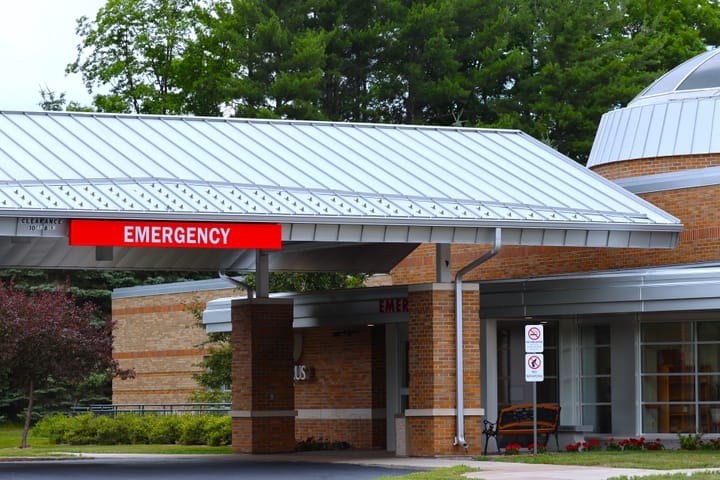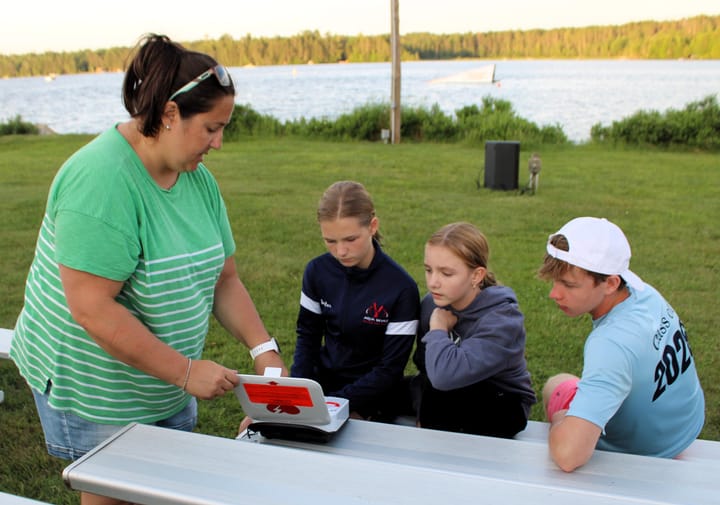Eagle River Family Discovers Silent Threat Lurking in Well Water

Benefit planned this Saturday at Sweetwater to support Tamelings
Well water is a prominent source of how people in the Northwoods drink, cook and bathe, but when that water is unknowingly compromised the effects can be disastrous. That's been the reality for one Eagle River family that recently discovered its well water contains extremely elevated amounts of lead — far beyond what the EPA considers safe.
Michelle Favorite, Alex Tameling and their three young boys have been dealing with the fallout in the form of significant health issues, and want to bring awareness to the fact that this can happen to anyone.
After months of what Favorite described as "ongoing neurological issues, expanding medical problems, and increasing frustrations," she decided to explore the functional medicine approach, evaluating her environment and looking for causes such as mold that could explain what she and her husband were experiencing.
"We had our water tested in the past; I mean, who hasn’t?" Favorite said. "I texted a friend who owns a local well drilling company and asked if she could test our water again. In healthcare, this was what we call a 'rule out.' 'We know it's fine, but let's do it again to make sure'."
The results that came back were shocking. The water showed lead amounts significantly higher than the federally recognized toxic level of 15 parts per billion. Favorite said they had two tests performed at an EPA-approved lab. The lead numbers they got back are some of the highest reported in Vilas County over the last 45 years.
Importance of Testing Well Water
Unlike municipal water systems, there are no state or federal regulations mandating that homeowners routinely test their own well water for contaminants. In the case of property transfers or new wells being drilled, a simple test for coliform bacteria, nitrate and arsenic is often required, but lead isn't typically tested for unless it's at a client's request.
So although the family had performed tests on its water previously, Favorite said they discovered their own naivety regarding the types of testing available. "We had our water tested in the past, but were unaware what that actually entailed. Private well water testing falls strictly on the homeowner at a federal level. Tests range from $25 to $700-plus, depending on what you're testing for."
Lead can be found in old buildings that are still outfitted with lead pipes or aged paint, but the Tameling's relatively new home, equipped with plastic pex tubing, did not contain any of the common lead carriers as far as they could tell. The family's well was drilled in 2010, and any likely environmental factors have been ruled out as contaminants.
The Wisconsin Department of Health Services and Department of Natural Resources both strongly recommend that private well users test for bacteria annually or when you notice a change in taste, color or smell; nitrate annually and before a well is used by a pregnant woman; and arsenic and lead every five years.
Locally, water can be brought into the Vilas County Public Health Department for testing on Mondays from 8 a.m. to noon. More information on pricing is available on the website by scrolling down to "Water and Lab Awareness." The department offers a Homeowner Kit which tests for bacteria, nitrates, arsenic, hardness, pH, iron and alkalinity for $80. A lead test can be added for $25.
Family Health Worries
While many questions still remain on how the lead got into the system, and what the family can do to moving forward, Michelle and Alex's biggest concerns lie with their three young boys who have orally ingested lead during their most vulnerable developmental years.
According to the U.S. Environmental Protection Agency (EPA) and Centers for Disease Control (CDC), there is no safe level of lead exposure without adverse affects, especially for children. Even low levels of lead in blood are associated with developmental delays, difficulty learning, and behavioral issues. The effects of lead poisoning can be permanent and disabling.
"My heart breaks over and over again thinking what this could mean for them. This is a huge problem in developing countries… but here?! My kids could have 6-1/2 years of lead exposure. My youngest was one week old when we moved in," she said. "Our boys did nothing to get dealt this hand. Our focus will be lots of detox, identifying their needs, and fully supporting them going forward. All three boys have new medical diagnosis over the last few years. It had never once crossed my mind that they could be related."
To make matters more difficult, there is not a simple blood test that can be done to gauge the amount of lead in a person's system. The CDC states that blood tests only test for recent exposure; they won't show results for past exposure. The majority of lead stores are located in the body's teeth and bones, making it hard to test. Those stores can be released during times of stress, or transferred to a fetus during pregnancy.
Spreading Awareness
After this experience, Favorite is a strong believer in the importance of getting the proper testing done on well water. "The majority of people we’ve spoken to did not have lead included on their water test, let alone any other environmental toxins. Most folks just had the basics done," she said.
Since receiving their own results, the Tamelings have been in contact with Midwest Water Advocates (MWA) and the Wisconsin DNR in order to figure out their next steps. MWA stressed the importance of speaking to their neighbors to encourage them to have testing done. The results of those tests are pending.
"We pray that this devastating discovery is isolated to our property. If not, we hope this information can help anyone else this may be affecting. There is no regulation on private well water testing. Please do your research and protect yourselves. We would do anything to go back in time."
After growing frustration regarding the lack of public awareness, Favorite has created the Northwoods Clean Water Initiative, Inc. — a nonprofit actively seeking its 501(c)(3) status — to get the word out. She says the goal of the nonprofit is to increase people's awareness about the environmental health impacts of excessive chloride-based road brining — particularly its potential to accelerate lead leaching into groundwater from plumbing and fixture corrosion.
It also aims to provide financial assistance and access to private well water testing for residents of Vilas County and the surrounding communities, and promote community education on safe water practices and well stewardship, in addition to funding further environmental research and find ways to protect the region's freshwater sources.
More information on the initiative is available at facebook.com/northwoodscleanwaterinitiativeinc.
Community Rallies
The family is facing a number of challenges currently, including finding the source of the contamination while also accessing clean water for themselves and their animals. They'll also need to learn their options for well remediation and are working with a number of agencies as well as seeking legal counsel.
In addition to medical evaluation and care, the family is also facing medical bills paired with the loss of income for the foreseeable future due to their health issues.
"I have been navigating ongoing neurological problems that forced me to take medical leave, still unable to check the boxes for my minimum job requirements allowing my return," Favorite said. "Sixteen years on the job (in the medial field), and not knowing if I can return to what I loved to do, the way I served our community, my family away from family… that's a bit of a hard one to swallow."
While the costs are quickly outpacing any income the family is able to bring in, the community has stepped in to offer their help, which is something Favorite and her family were not expecting. "With Alex and I enduring seemingly rare medical events heavily impacting our family, our amazing village had already gone above and beyond to support us. Fundraisers had already been in motion; we’ve been surrounded by never ending love and support," she said.
Another event is planned for this Saturday, June 21, from 11 a.m. to 2 p.m. at Sweetwater Spirits and Resort in Eagle River. There will be raffles and other events taking place, and proceeds will benefit the family.
"Our work family had been working on this for months, and it's true divine intervention that this event had been scheduled months after our initial crisis. It could not come at a better time and we couldn't be more grateful!" Favorite said. "With all the folks we’ve spoken to from all over Wisconsin the last few days, we have heard the same thing more than once — northern Wisconsin has a special thing that separates them from the rest of the country. When things go south, the communities pull together and support each other in a way we just don’t see anywhere else. That is the truth."
In addition to in-person fundraisers, money is also being collected through Go Fund Me, and an account has been opened at Ripco Credit Union. Checks can be made payable to Alex Tameling or Michelle Favorite.



